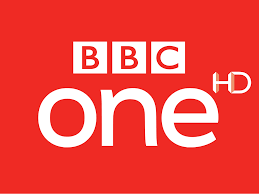BBC One: The Heart of British Television

Introduction
BBC One, the flagship television channel of the British Broadcasting Corporation (BBC), plays a pivotal role in the UK’s media landscape. Launched in 1936, it has become synonymous with quality programming, news, and entertainment. With its commitment to public service broadcasting, BBC One continues to influence British culture and society significantly, making it essential to examine its current relevance, initiatives, and future prospects.
Current Programming and Audience Engagement
As of 2023, BBC One has staged a remarkable comeback with a refreshed content strategy that appeals to a wide audience. Notable recent programming includes the critically-acclaimed drama series ‘This Is Going to Hurt’, based on Adam Kay’s memoir, and the return of classic shows like ‘Doctor Who’. Furthermore, events such as athletic competitions and national celebrations have attracted record viewership. The channel’s ongoing efforts to provide engaging content reflect its mission to connect with the public across different demographics.
Technological Advancements and Future Initiatives
BBC One demonstrates constant adaptation to the changing media environment by embracing new technologies and platforms. The launch of iPlayer has revolutionised how audiences consume content, enabling viewers to watch their favourite shows on demand. Furthermore, it continues to invest in high-quality content as part of its long-term strategy to maintain relevance in a competitive landscape where streaming services dominate. Looking forward, the BBC is expected to enhance its digital offerings further, including augmented reality experiences for audiences.
The Significance of BBC One in Society
Additionally, BBC One serves as a platform for important cultural dialogue, presenting documentaries and programs that explore significant social issues. Programming like ‘Question Time’ and ‘Panorama’ not only inform viewers but also incite conversations about critical matters affecting the UK. The channel remains a crucial institution for promoting impartial news and fostering democratic values within society.
Conclusion
As we advance further into the 21st century, BBC One stands firm as an iconic entity in British television. Its ability to adapt, innovate, and present relevant content ensures its status as a staple in British households. The channel is likely to continue embracing technological advancements whilst remaining committed to its public service ethos. For viewers, the future looks promising as BBC One aims to remain at the forefront of engaging and meaningful broadcasting.









